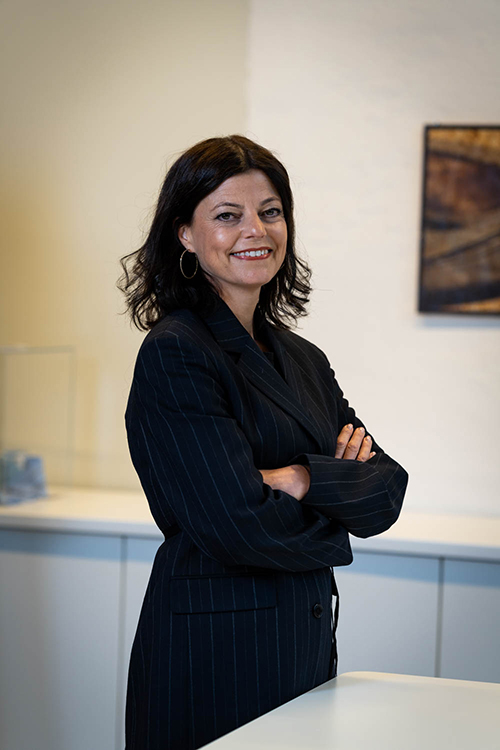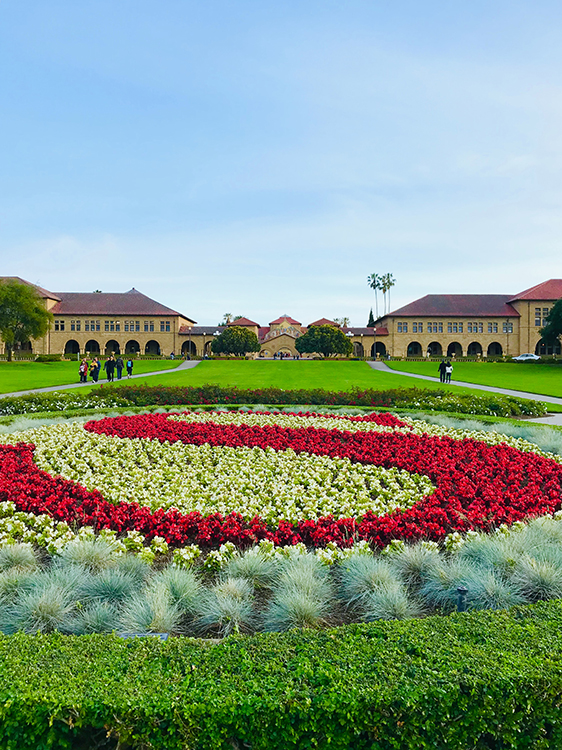Smart Textiles strengthens its international position
A prestigious fellowship gave the Director of Smart Textiles, Susanne Nejderås, the opportunity to further strengthen the organization’s international position. For thirteen months, she worked towards this end in Silicon Valley, USA, as part of a fellowship funded by the Knut and Alice Wallenberg Foundation. The result was, among other things, Smart-shirt, a unique first collaboration between Smart Textiles at the University of Borås and Stanford University.
Smart Textiles, which is part of Science Park Borås, is together with the Swedish School of Textiles a recognized actor internationally. With the help of the fellowship, Susanne Nejderås wanted to further develop the possibilities for new collaborations between Smart Textiles and Silicon Valley. The overall goal meant that Smart Textiles was to take an important step to the next phase of being the internationally leading innovation partner in textile renewal. During the fellowship period, starting in November 2019, Susanne Nejderås worked from Nordic Innovation House in Palo Alto as part of Vinnova’s Team Sweden.
“The stay has given me a unique experience and the concurrent pandemic is an unforgettable time. The three-month lockdown was a trial that led to many insights. An interesting reflection is how different people react when exposed to something so extreme. People go through different phases and some handle this in very different ways. Personally, I see it as a privilege to have been smack in the middle of this historic moment that will surely change Silicon Valley, California, the United States, and the rest of the world.”
Continue to strengthen Smart Textiles in the international arena
One purpose of the fellowship was to gain a deeper understanding of the international context and knowledge of investments and directions ongoing in the area of sustainability and technology. The ambition was also to market and showcase results from Smart Textiles, especially the national platform Textile & Fashion 2030, to elicit interest in future collaboration. Spreading knowledge about the development opportunities available to Swedish companies was an objective, but also developing and creating new networks for knowledge exchanges and collaborations.
“My main focus was the government assignment Textile & Fashion 2030, which is intended to include an international outlook. I brought concepts from our work with me and introduced them to interested actors on site. What I had not expected was, of course, COVID-19 and the challenges that followed due to the pandemic. At the same time, I feel that the situation has also brought with it openness, humility, and interest in collaboration to try to solve problems together for a better world in the new normal,” said Susanne Nejderås.
She continued, “The Smart-shirt project with Stanford created interest early on. Several parties are now collaborating on a textile garment with integrated technology in order to be able to detect infectious diseases early, with COVID-19 as an example. The project is one of the results that makes me extra proud and which is the beginning of a future journey together.”
Inspiration for an innovation environment
By working and being present on site during the fellowship period, Susanne Nejderås gained valuable contacts and a unique insight into the culture in the iconic area, as well as experience of a world-class innovation environment. The stay has created leverage in such a way that the experience can benefit the Textile Fashion Center as a whole and its operations. This in turn can mean that Smart Textiles can further develop its innovation environment to become as strong and successful an environment as the one in Silicon Valley, yet with a specific focus unique to the organization. Susanne Nejderås’s fellowship and experiences enable Smart Textiles, as part of Science Park Borås and the innovation environment Textile Fashion Center, to now take the step to the next phase and become the international leading innovation partner in textile renewal as a leading centers in the world within textiles and fashion.
“Our future approach is to continue to be part of the innovation environment in Silicon Valley and we are next planning, within the framework of the government assignment Textile & Fashion 2030, an international design hackathon conference in 2021 which will be held in three different places in the world, including Silicon Valley. Furthermore, the Smart-shirt project continues to progress together with Stanford, where our goal is the development of a prototype in the spring.”
Link to an article about Smart-shirt


